|
The next day, we had
just a single tour scheduled. And that was a good thing as it
would allow us to go shopping downtown later that afternoon. The
first stop was the Nijo-jo Castle which was built in the 16th
century. The castle was used as the headquarters for official
business and as a residence for the Tokugawa Shoguns while they
were in Kyoto.
In the photo, we are about to
enter the main gate, Higashi-Ote-mon noted on the bottom-right of the map
below. On the mouse over
picture, we are entering the inner gate, Kara-mon. That is the
Ninomaru Palace directly ahead of us. |
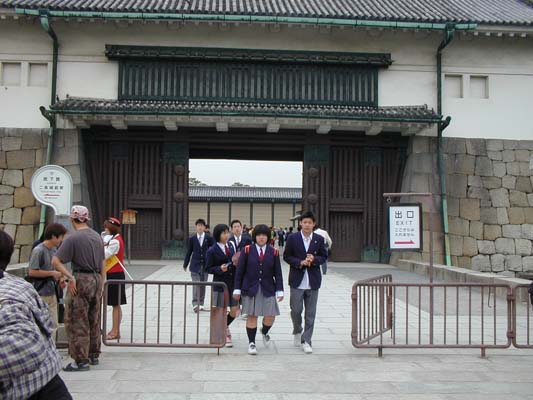 |
|
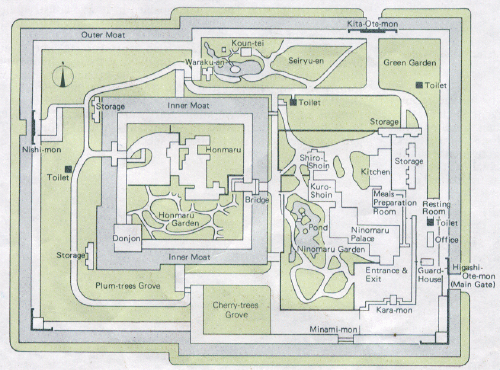 |
This is a map of the
castle grounds. We had time only to tour the Ninomaru Palace,
Kuro-Shoin and Shiro-Shoin complex. After we toured the buildings,
we walked through the Ninomaru Garden. We did not have a chance to
see the Honmaru complex that is surrounded by the inner moat. |
|
|
Before we entered the
main complex, we were required to remove our shoes and place them
in these cubbies. Once again, Jennifer has garnered some fans as
they requested a picture with her. |
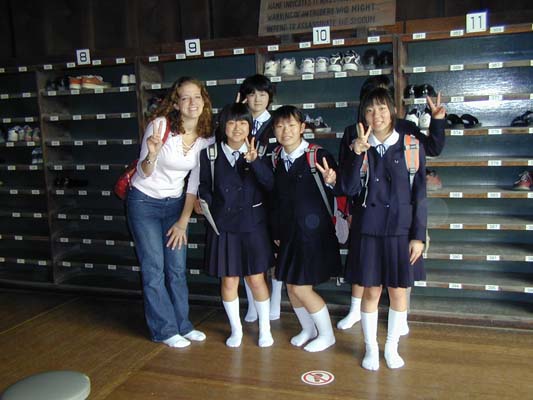 |
|
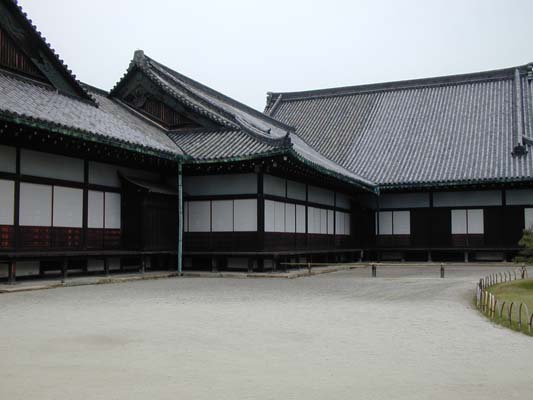 |
We were not allowed to
photograph the inside of the complex, but you can see the outside here
taken from the Ninomaru Garden. Just inside those white panels are halls
built with a type of flooring called
nightingale boards.
As you walked down these halls, the boards would make a singing, squeaking
sound. Much as Jennifer and I tried, we could not trod them quietly. This
was just one additional safeguard to warn against intruders.
On the mouse over picture is another view of the main complex and
the gardens. |
|
|
The gardens and paths
surrounding the complex were beautiful and a tranquil pleasure to
wander along. |
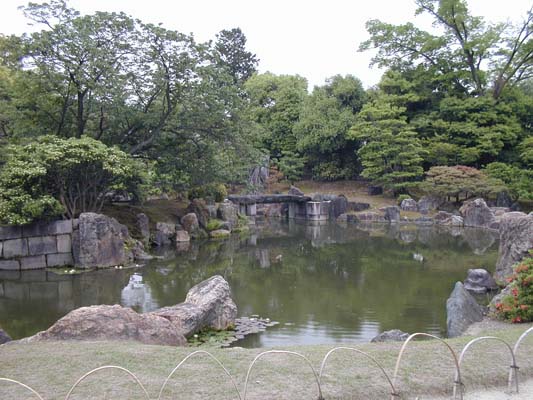 |
|
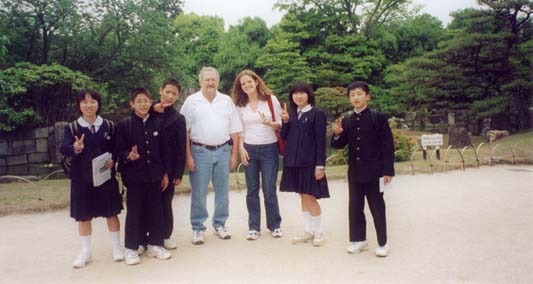 |
This time I was asked
to join in the group picture. For some reason, that two fingered
victory sign is really popular for photographs. |
|
|
If you look at the
map above, this is one of the small paths on the Seiryu-en at the
top of the map. We were running short on time and really had to
get back to the bus, but I did take just a moment to enjoy the
peaceful serenity. |
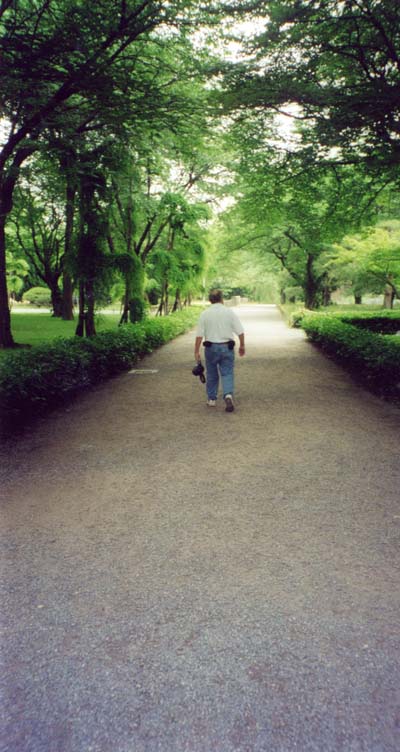 |
|